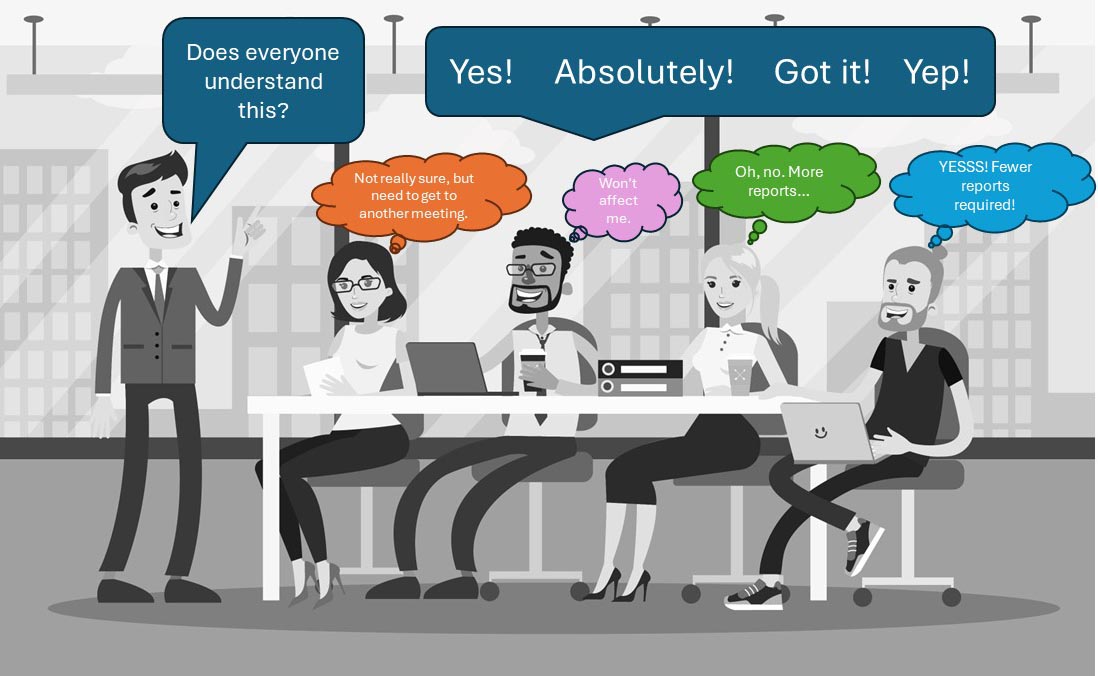A few weeks ago, I posted about one of the three most worthless questions to ask in a meeting: “Does anyone have any questions?”
Today I look at the second of those questions: “Does everyone understand this?”
Such questions waste your time and everyone’s for several reasons. For starters, when was the last time you heard, “No, I didn’t understand it,” in response? Have you ever?
Think about why people almost always answer “yes.” To begin with, it literally is a “yes-seeking” question (in the terminology of negotiation expert Chris Voss). People don’t want to look bad in front of their peers, appearing to struggle with a concept that no one else in the room seems to find problematic. All the other heads in the room are nodding yes, and going against that unanimity makes one look like they’re not a good team player. Another reason is simple politeness. Consider how similar “Does everyone understand this” and “Doesn’t my baby look cute?” are. And then there are the people who say yes just to get to the next item on the agenda. The yes response does the work of moving on (recall my recent posts on conversation analysis).
Finally, even if everyone in the room answered yes because they believed they understood the topic (that is, none of the above drivers were in play), you still have no idea of HOW any of them understood it. Each person has a unique lens through which they process information. As noted in my piece on compliance vs. commitment, we each interpret information in the light of prior knowledge and past experiences. So, even if everyone understands the information, some will interpret it in terms of new possibilities while others will view it as “Oh no, here we go again.” And isn’t getting at the individual interpretations really more valuable than asking a question that you know everyone will answer the same way?
So, why not ask the disconfirming question, “Where might this HSE initiative (or thing you might be working on) meet resistance?” Doing so signals that you acknowledge there might be some resistance and that you’re looking for ideas on how to deal with it. Another useful strategy explicitly explores how the room heard the information. It employs questions such as, “What does this mean we will be doing differently?” This lovely presupposition structure not only embeds the thought that we will be doing something differently (perhaps a key point to make), but it also produces responses that give you insight into how they interpreted what you had covered.
